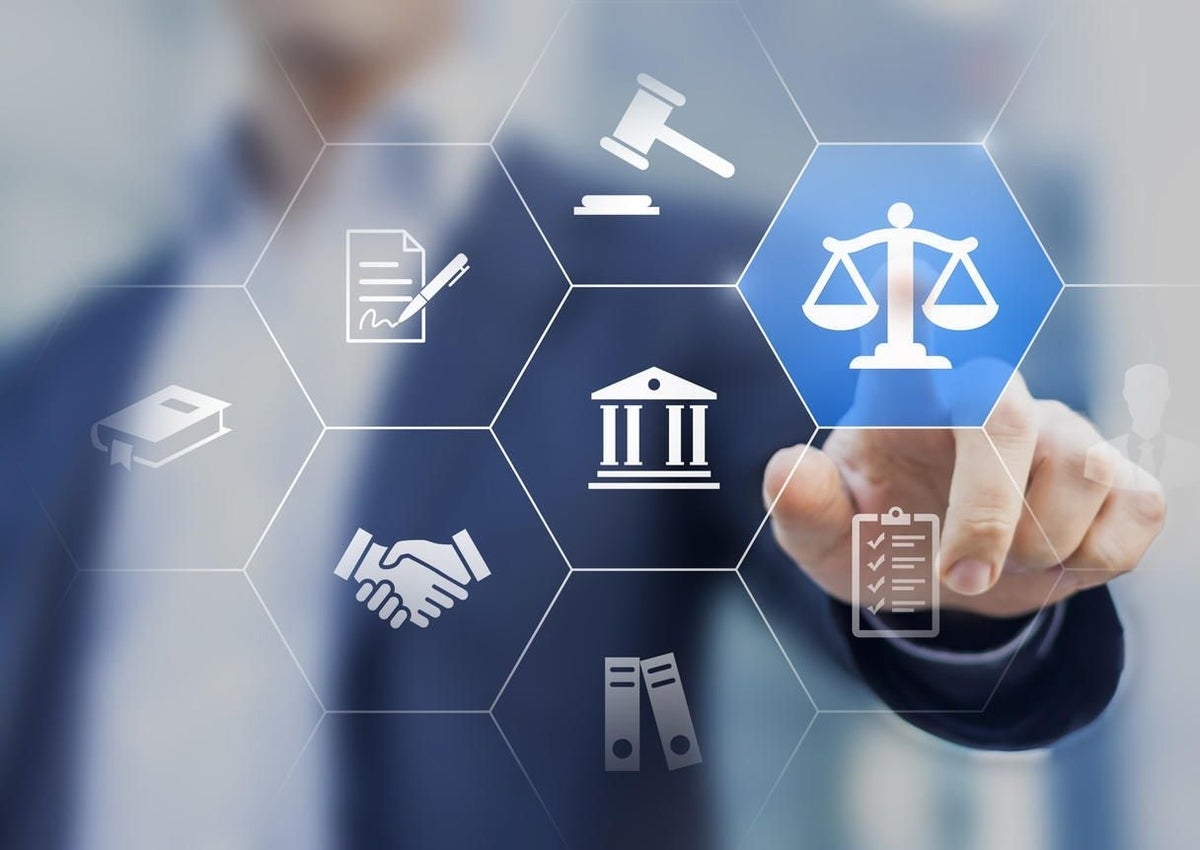
Image: NicoElNino, Getty Images/iStockphoto
As TechRepublic’s Veronica Combs recently pointed out, software development remains a very successful and lucrative field, although, she said, “the industry preference has shifted from specialists to engineers with a varied skillset.”
SEE: VMworld 2019: Key takeaways for business leaders (free PDF) (TechRepublic)
Programming skills can be diverse, covering a wide array of languages, techniques, and focuses. One such skillset involves an up-and-coming trend known as legal engineering.
I discussed legal engineering with Cai GoGwilt, CTO and co-founder of Ironclad, a legal contract software development organization to find out more about it and what types of opportunities it can offer.
Scott Matteson: Can you define the legal engineering role?
Cai GoGwilt: At Ironclad, legal engineers are legal and product experts who work closely with customers to drive successful deployments. Legal engineers operate at the intersection of technology, law, customer success, and product development. On any given week, they may be helping a customer map out a new process for their procurement contracts, involved in scoping a sales deal, or working with our product team to define a new feature.
Legal engineers come from incredibly diverse backgrounds and collectively have years of experience and insights that benefit our customers tremendously. They include former attorneys from top law schools and some of the country’s best law firms, experts in contract law, and a former civil rights trial attorney. We have other legal engineers who came to us from top-tier management consulting firms and several who gained considerable experience at some of Silicon Valley’s best SaaS companies.
These diverse backgrounds and responsibilities mean that the role of legal engineering can seem very different depending on who you ask. To our customers, they are thought partners, advising on best practices for building a modern legal team. To our product team, they are the voice of the user, listening and synthesizing valuable feedback. Sometimes, we even refer to them internally as our in-house S.W.A.T. team, because they are ready and able to jump in and help fix any situation.
Ultimately, legal engineers are at the forefront of the modernization of in-house legal. As legal technology continues to evolve, so will legal engineering. They are writing the playbook of the new best practices for building a modern legal team and will always operate at the frontier of this evolving practice.
Scott Matteson: What customer need is the role based upon?
Cai GoGwilt: When it comes to modernizing legal, customers need a broader strategy. This is where legal engineering comes in. Lawyers do not typically learn how to operate a modern, in-house legal team in law school. Legal engineers can provide guidance on how to design or improve contracting processes, engage stakeholders on other teams, and connect Ironclad with other key systems.
More generally, in-house Legal is rapidly evolving. Legal operations, for instance, is still a very new practice, and even the most tenured individuals in legal ops have only worked on a few legal teams. Our legal engineers see many different ways of running a legal team and often work closely with 10 or more customers in their first month alone. This level of engagement and diversity of experience leads to a deep understanding of common user pain points and how to develop and deploy effective solutions.
Scott Matteson: What is the parallel between in-house legal work and software engineering? And how does legal engineering bridge the gap?
Cai GoGwilt: There are many parallels, but I think a key parallel is between contracts and code. Putting together a contract seems a lot like putting together a computer program: You are trying to lay out what should happen and anticipate every edge-case and eventuality. It also tends to be very collaborative: Lawyers need to understand the business case for the contract, while engineers need to understand the use case for the software.
One place the parallel breaks is that software engineers are able to build tools to make themselves more effective. Legal teams generally recognize that there is a lot of repetitive, highly-automatable work that is bogging them down. However, recognizing the problem and adopting a mindset for addressing the problem are different. Legal engineers help our customers efficiently adopt a forward-looking mindset on building out a modern in-house legal team.
Scott Matteson: What are the origins of legal engineering?
Cai GoGwilt: Legal engineering was one of the first teams at Ironclad, and the team has really been shaped and changed by the people on it. Initially, it was a general business development role and involved understanding customer problems and relaying these problems to the engineering team. However, many of our early teammates came with legal backgrounds and deep interests in the intersection of law and technology. As a result, our product team built in-house tools to enable our legal engineers to directly address customer needs. Empowering legal engineers in this way completely shifted the role from focusing on synthesizing feedback and summarizing problems to partnering with customers and solving problems.
As the legal industry continues to grow and evolve, I have no doubt that legal engineering will continue to grow and evolve with it. The common thread will be the amazing people on the team and their passion for bringing together law and technology.
SEE: Software developers say they feel pressure to sacrifice code quality to meet deadlines (TechRepublic)
Scott Matteson: What makes legal engineers successful?
Cai GoGwilt: Legal engineers are a key touchpoint in terms of customer success. They guide deployments but also drive adoption by teams including sales, HR, procurement, and various business stakeholders who are involved in approving contracts. In many ways, successful legal engineers’ goals are the same as the clients they serve: Identify more efficient processes for contract generation and completion built around our technology. Successful legal engineering engagements set the stage for more positive, rewarding long-term customer relationships.
It’s important to emphasize that legal engineers don’t just focus on success in the near-term, either. The goal for legal engineers is to learn along with our customers, cataloging familiar pain points or problems and developing common practices for addressing them, regardless of industry or vertical. Legal engineers have a tremendous opportunity to shape the future of legal tech. They accomplish this by speaking the same legal language as our customers and applying the insights of our software team to drive powerful solutions at scale.
Scott Matteson: What educational qualifications do legal engineers need?
Cai GoGwilt: As we look toward the future of legal, we need to bridge the gap between technology and legal, and legal engineers are very literally doing this. This role helps companies maintain a diverse, highly-driven team. Finding successful legal engineers hinges on finding people with the drive to expand their skillsets and build on core competencies of the legal education or experience.

